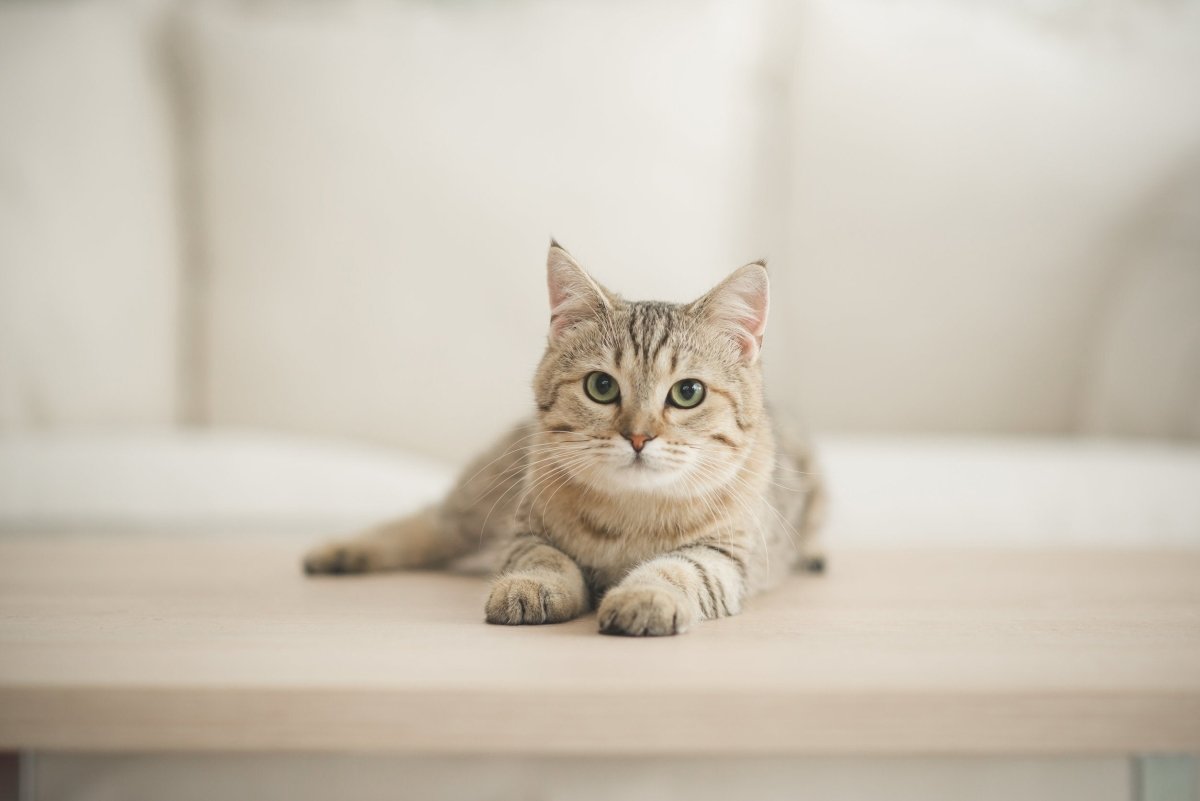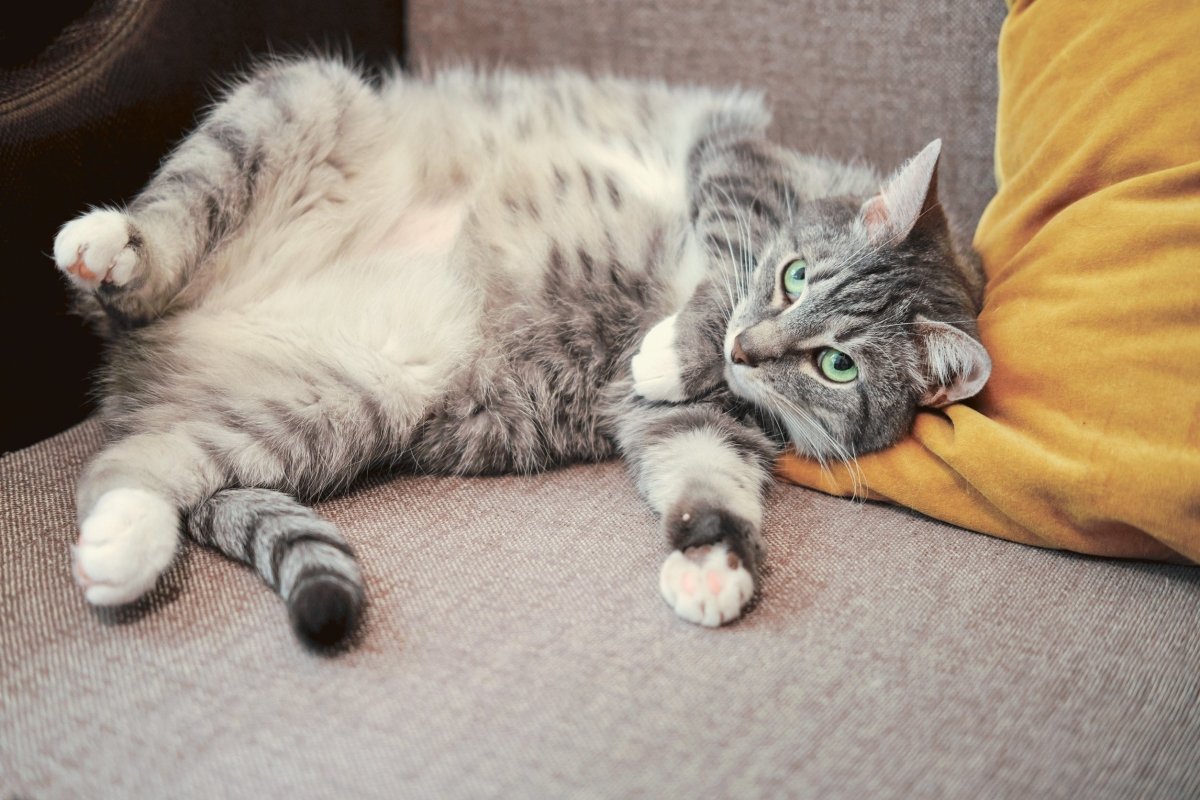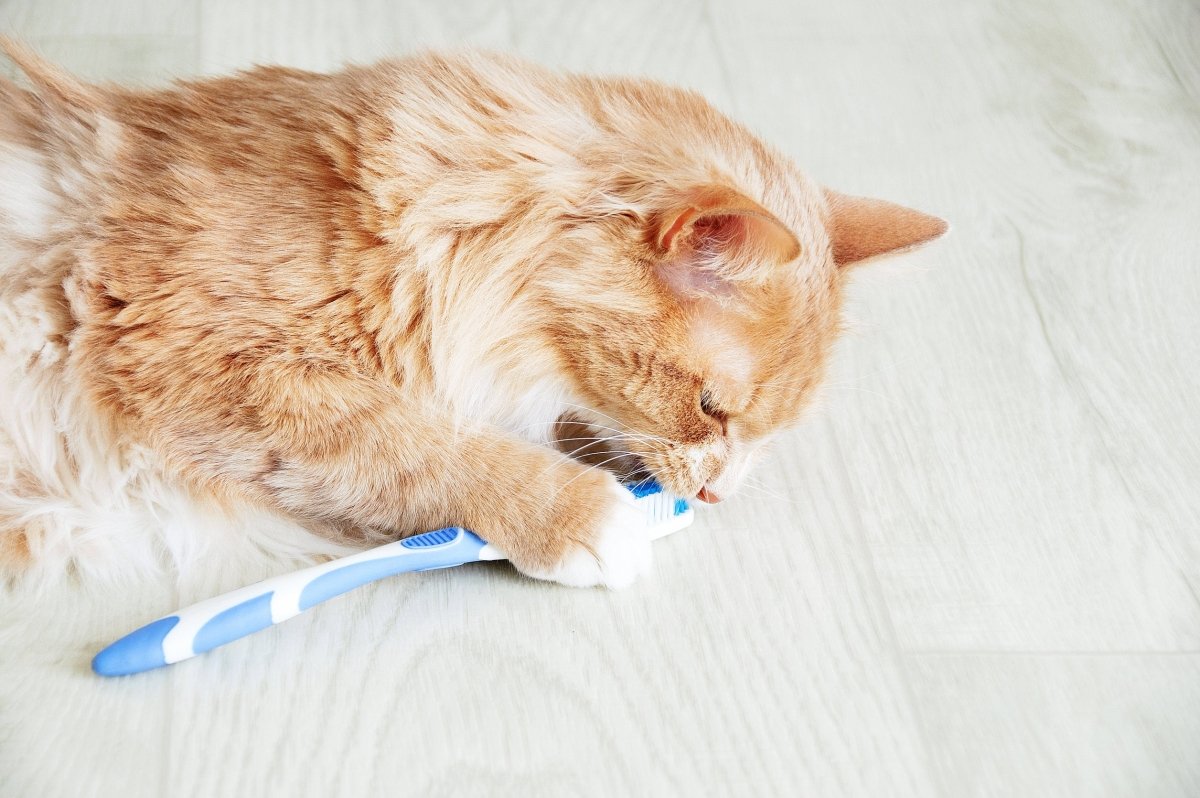Breathing problems are quite common in cats and often seem frightening to owners. But don't worry! In most cases, if your cat or cat is breathing heavily, it's just something harmless. Nevertheless, the cause should be clarified by a vet - especially if the symptoms are severe or chronic.
But how exactly do you recognize that your cat is breathing heavily? This refers to heavy pumping breathing, where your cat breathes quickly and deeply into its stomach. However, rattling or coughing, as well as shortness of breath, can also be described as heavy breathing.
In the following, we - AniForte - would like to introduce you to typical causes and accompanying symptoms of heavy breathing in cats, which can provide indications of certain diseases. Under no circumstances does this blog post replace a visit to the vet. So if you notice that your cat is breathing really heavily, there is no way around a visit to the vet.
Possible causes of heavy breathing in cats
You have noticed: My cat is breathing heavily. Don't panic immediately until you are sure of the actual cause. In fact, there are a whole range of causes that can explain heavy breathing in cats. Infectious pathogens such as parasites, bacteria or viruses can be behind it, but narrowing or collapse of the windpipe, asthma or tumors can also be causes of breathing problems in cats.
In most harmless cases, it may be that your cat is ill, has just got a small blade of grass in its windpipe or has inhaled its own hair. Nevertheless, you should continue to observe them and visit the vet after 1 to 2 days at the latest if the breathing problems have not completely resolved by then.
At a glance: Is your cat breathing heavily? Then the cause should be clarified by a vet as soon as possible, as it is an alarm signal for the following diseases, among others:
- Inflammation of the airways
- Tumors that narrow the windpipe
- Foreign bodies that cannot be coughed up
- Worm infestation in the heart or lungs
- Heart problems
- Accumulation of water in the lungs (pulmonary edema)
- Rib fracture
- poisoning
- high fever
- and much more.
As you can see, heavy breathing in cats can certainly be a sign of a serious illness. Is your cat breathing heavily too? A visit to the vet is definitely recommended to clarify the causes.
Is your cat breathing heavily? Accompanying symptoms and typical signs of illness
Cats that are breathing heavily often have typical accompanying symptoms that may indicate the underlying cause. This is because your cat is breathing heavily because it is probably ill. In order to be able to explain to your vet as precisely as possible which symptoms have occurred, you should always keep the following symptoms under observation.
Ingeneral, pay more attention to your cat's behavior: Does it tend to withdraw or is it particularly affectionate? Does it eat and drink unusually much or little? Also check whether your cat is sensitive to pain or reluctant to be touched. All of this will help the vet to identify the cause and treat it.
If your cat is ill, its immune system is weakened and now needs a natural boost. In order to protect your cat from external circumstances, the propolis powder creates a natural barrier for stubborn animals against transmissible infectious diseases.
Cat breathes heavily and does not eat
Cats have a natural survival instinct and are inclined not to show any signs of pain or illness. Is your cat breathing heavily and eating conspicuously little or nothing for more than a day? Then consult a vet.
On the one hand, your cat may be in pain when swallowing food. We are also familiar with such symptoms in respiratory diseases. However, as cats usually like to eat a lot and above all instinctively, the cause should be clarified. Loss of appetite can also be a sign of a serious illness.
Cat breathes heavily and wheezes or coughs
Cats are often plagued by coughing and wheezing, which usually occurs due to one or more viral infections - the so-called feline cough complex. The herpes virus and calicivirus are particularly dangerous, as they can lead to inflammation of the mucous membranes and conjunctiva. Is your cat breathing heavily? Then have the cause checked by a vet as a precaution.
Infections often primarily affect young or immunocompromised cats. However, heavy breathing with a rattling cough can also occur in older cats. Various imaging procedures as well as blood or fecal examinations can detect water retention, foreign bodies, inflammation (asthma), tumors and infections.
Your cat is breathing heavily and you would like advice from us? No problem! Contact us and we will be there for you and your cat.
Cat breathing heavily and quickly - why is that?
Particularly heavy and rapid breathing in cats usually indicates excessive exertion, dehydration, intense heat or fever. While dogs pant almost constantly, rapid breathing or panting in cats is rather unusual. So if you notice that your cat is breathing heavily, it should be seen by a vet as soon as possible.
You can also measure the breaths per minute. Have a stopwatch ready and count how often your cat breathes in; over 60 breaths per minute is clearly too many, 25 to 30 is within the normal range.
In addition to foreign bodies, poisoning, a greatly increased body temperature or an insect bite can also lead to heavy and rapid breathing in cats. If you notice that your cat is breathing heavily, don't panic, but consult an expert as soon as possible.
Treating breathing problems in cats
The treatment methods for breathing problems in cats always depend on the underlying cause. If heartworms or lungworms are the problem, a worming treatment should be administered in the early stages. Dehydrating tablets can help with pulmonary oedema, while viral infections are usually treated with an antibiotic.
As severe breathing can become chronic, you should always consult a vet first before resorting to home remedies for breathing problems in cats. In the worst case, this could be counterproductive for your cat - in any case, you are delaying professional treatment because your cat is breathing heavily for a reason.
Is your cat breathing heavily? The first port of call is the vet
Even if you can't hear it by now: Breathing problems such as heavy, rattling or rapid breathing can be a serious warning sign for cat owners. It is therefore never a bad idea to take your cat to the vet, even if the cause is ultimately harmless.
Pet owners are usually very good at assessing their own pets and recognizing when their cat is in a bad way. Is your cat breathing heavily and does its behavior seem unusual to you? Don't be afraid to call the emergency services if you are seriously worried, have difficulty breathing or see strong signs of illness.
Is your cat breathing heavily? These home remedies can help!
Your cat is breathing heavily, your vet has made a diagnosis and initial treatment has been started? Then you can support your cat's breathing with additional remedies. It's best to ask what you can do at the examination appointment. Your cat is breathing heavily and you want to help her, but resorting to herbal remedies, supplements etc. on your own can lead to side effects. You should therefore refrain from doing so.
A healthy diet of natural, fresh cat food strengthens your cat's immune system and metabolism.
If you notice that your cat is breathing heavily, you can let it inhale in the transport box using hot water and a pot. The pot should be placed outside the box and at a sufficient distance from the cat. Never let your cat out of your sight during such attempts and stop immediately if your cat feels uncomfortable under the towel.



